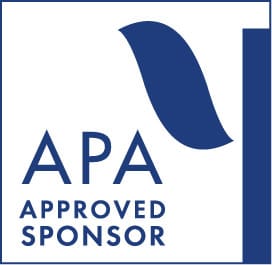- ADHD
- Adults
- Alternative Medicine
- Alzheimers & Aging
- Animal-Assisted Therapy
- Autism
- Behavior Therapy
- Child & Adolescent
- Closeout
- Communication
- Couples-Family-Parenting
- Cultural Diversity
- Depression & Anxiety
- Domestic Violence
- Ethics & Risk Management
- Gender Identity
- HIV-AIDS
- Human Trafficking
- Laws & Rules
- Medical Errors
- Mindfulness & Yoga
- Miscellaneous
- National Psychologist
- Nutrition & Fitness
- Pain Management
- Psychotherapy
- Sexuality
- Substance Abuse
- Suicide
- Supervision
- Trauma & PTSD
Therapy Tidbits – Fall 2019
The National Psychologist
$14.00
 Introductory
Introductory
 Online
Online
Course Abstract
Therapy Tidbits – Fall 2019 is a 1-hour online continuing education (CE) course comprised of select articles from the Fall 2019 issue of The National Psychologist, a private, independent, quarterly newspaper intended to keep psychologists informed about practice issues. The articles included in this course are:
New Lawsuit Revives Issue of Duty to Warn – Reminds practitioners of their Duty to Warn of potential threatening behavior from patients and recommends keeping up to date with specific state laws.
Increases Anticipated Next Year for Assisting Medical Patients – Provides the history behind, and an explanation of, the proposed changes to the Health and Behavior (H&B) CPT codes in January 2020.
PSYPACT Soon to be Operational – An overview of PSYPACT and proposed timeline for its authorization.
Calling out Microaggressions: An Ethical Obligation – Provides an example of microagression and suggests a structured, easy to remember, strategy for intervention.
Practitioners can Help Latino Community – Offers strategies (including education, CBT, and creating support groups) to help members of the Latino Community.
Social Factors Outweigh Treatment in Health Outcomes – Provides an overview of the ways in which healthcare providers collect data on the Social Determinants of Health and how they affect a person’s well-being.
Urinary Tract Infection Can Cause Misdiagnoses in Elderly – Describes the complexities of, and offers advice for, diagnosing a UTI in the elderly.
What Kind of Liability Insurance is Best? – Discusses the difference between an Occurrence insurance policy and a Claims-Made policy.
ECPs in Rural Areas Face Challenges – Lists the challenges faced by early-career psychologists practicing in rural areas and offers suggestions for managing them.
Course #11-34 | 2019 | 18 pages | 10 posttest questions
Learning Objectives
- Describe the complexities involved in knowing whether one has a ‘Duty to Warn’
- Explain the “Open The Front Door” strategy for calling out microagressions
- List five Social Determinants of Health (SDoH) and how they affect patients’ well-being
- Identify three possible symptoms of a UTI and explain the psychologist’s role in diagnosing and treating
Course Directions
This online course provides instant access to the course materials (PDF download) and CE test. The course is text-based (reading) and the CE test is open-book (you can print the test to mark your answers on it while reading the course document).
Successful completion of this course involves passing an online test (80% required, 3 chances to take) and we ask that you also complete a brief course evaluation.
About the Author(s)
The National Psychologist : Find out More
The National Psychologist is a private, independent bi-monthly newspaper intended to keep psychologists informed about practice issues. Contributions and letters are invited. The editor reserves the right to edit articles and submissions for clarity and/or to meet specific space limitations. Publication staff is not responsible for opinions or facts in bylined articles.
Disclosure
Financial: The content for this course was published by The National Psychologist.
Nonfinancial: No relevant nonfinancial relationships exist.
CE Information
Psychology

Professional Development Resources is approved by the American Psychological Association (APA) to sponsor continuing education for psychologists. Professional Development Resources maintains responsibility for this program and its content.
Professional Development Resources is CE Broker compliant (#50-1635 - all courses are reported within two business days of completion). Professional Development Resources, Inc. is recognized by the New York State Education Department’s State Board for Psychology as an approved provider of continuing education for licensed psychologists (#PSY-0145).
School Psychology

Professional Development Resources is approved by the American Psychological Association (APA) to sponsor continuing education for psychologists. Professional Development Resources maintains responsibility for this program and its content.
Professional Development Resources is CE Broker compliant (#50-1635 - all courses are reported within two business days of completion). Professional Development Resources, Inc. is recognized by the New York State Education Department’s State Board for Psychology as an approved provider of continuing education for licensed psychologists (#PSY-0145).
Customer Testimonials
Enjoyable to work read and find. Easy. P.eace
Every issue of The National Psychologist has valuable information for me!
I like Therapy Tidbits because the articles keep me up-to-date on changes and current events in clinical psychology in the USA. Knowing I will be tested on the material helps me to pay better attention to the content and details
The article about the different types of malpractice insurance was the best, most thorough, most comprehensive, and most easy-to-understand article I have run across. It is a very handy article, which I think would be very helpful to clinicians just starting out in their careers. I especially liked and appreciated the explanation for why claims-made coverage is initially less expensive than occurrence-based coverage.
Concerns with new and constantly changing insurance matters CPT codes, were well presented..



